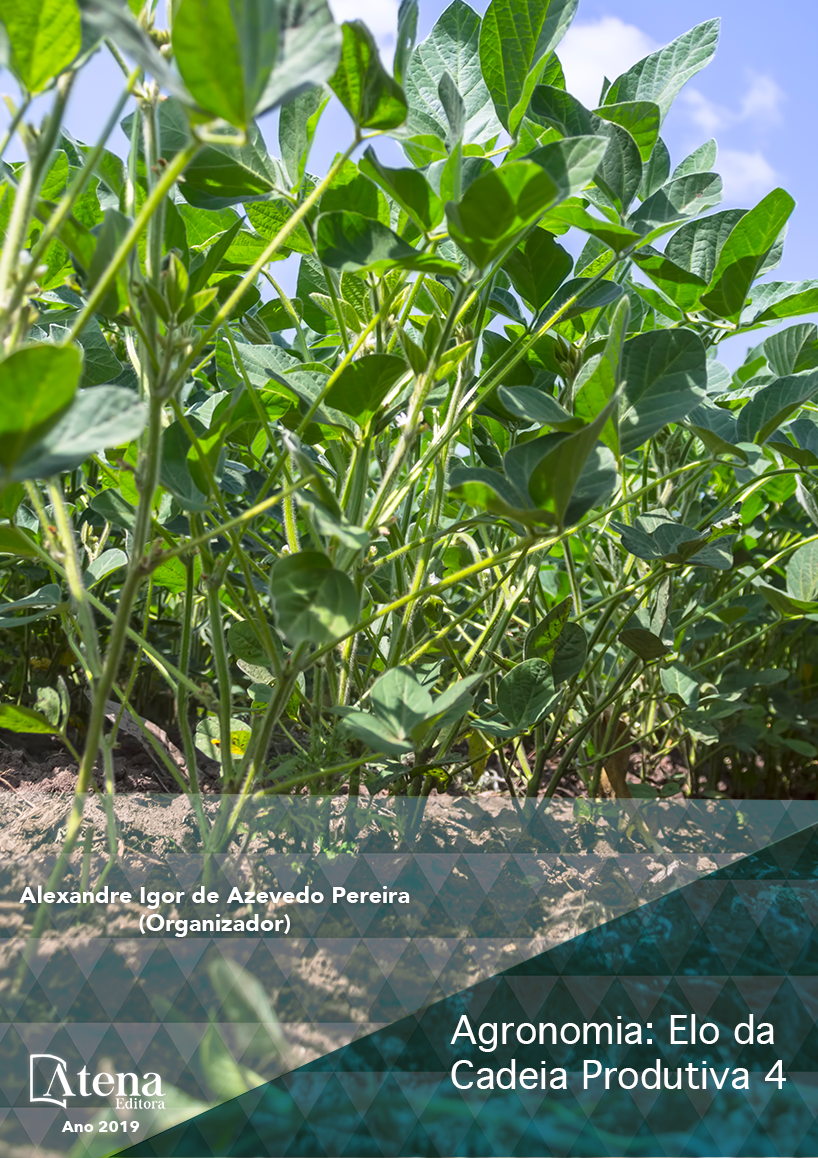
CERTIFICAÇÃO ORGÂNICA PARTICIPATIVA MAIS QUE UM GRUPO PARA O SELO, UM GRUPO PARA O CRESCIMENTO CONJUNTO
A agricultura orgânica vem se
mostrando enquanto uma alternativa para
agricultores familiares, na busca de agregação
de valores aos seus produtos. Esse tipo de
agricultura pressupõe alguns critérios que
precisam ser observados para que o sistema
produtivo tenha resultados produtivos, como
por exemplo, matéria orgânica suficiente para
que o solo tenha condições adequadas de
estruturação e reprodução da fertilidade; uma
boa cobertura do solo de maneira que ele
possa estar protegido das temperaturas muito
elevadas; e o quebra vento para que não ser
perca umidade do sistema e que, atualmente
também previne a deriva de agrotóxicos de
lavouras vizinhas, com isso a construção de
conhecimento entre os praticantes desse tipo
de agricultura é essencial para que se busque
a compreensão de toda essa complexidade. O
alimento orgânico não se trata, simplesmente de
um produto sem agrotóxicos, mas é resultado
de um sistema de produção que busca manejar
de forma equilibrada o solo e demais recursos
naturais buscando a harmonia entre os sistemas
e o homem. Nesse estudo foi utilizada abordagem
qualitativa para a análise de conteúdo a partir
de entrevistas realizadas, buscando perceber o
sentimento dos integrantes do grupo Natureza
Limpa de certificação orgânica, em relação ao
processo organizacional do grupo perante as
exigências da certificação, bem como para a
inserção de seus produtos no mercado. Foram
entrevistadas famílias do Grupo Agroecológico
Natureza Limpa no município de Santa Rosa/RS
e os coordenadores do Núcleo Missões da Rede
Ecovida, buscando identificar elementos que
permitissem alcançar o objetivo aqui proposto.
A entrevista foi semiestruturada e teve foco
para cada um dos agentes envolvidos. Uma das
conclusões que se chega a partir da reflexão
aqui proposta é a de que há necessidade de
que o nível de exigência burocrática para o
processo de certificação orgânica possa ser refletida por instituições de pesquisa, ensino, assistência técnica, organizações de
agricultores, de consumidores, enfim, pela sociedade como um todo. Destaca-se a
importância da rede de relações que se criou entre diferentes instituições e pessoas
pela busca de sistemas de produção orgânica, qualificados de conhecimentos sobre
produção, relação social e também pela busca de inserção, competitiva, no mercado.
CERTIFICAÇÃO ORGÂNICA PARTICIPATIVA MAIS QUE UM GRUPO PARA O SELO, UM GRUPO PARA O CRESCIMENTO CONJUNTO
-
DOI: I 10.22533/at.ed.43219040428
-
Palavras-chave: Sistema de produção orgânico, certificação participativa, redes sociais.
-
Keywords: Organic system production, participative certification, social network.
-
Abstract:
Organic farming is proving as an alternative to family farmers in the pursuit
of adding value to their products. This type of farming requires certain criteria that
must be observed that the production system has production results, such as organic
matter enough in order to the soil has adequate structural conditions of reproduction
of fertility; good coverage of the soil so that it can be protected from the very high
temperatures; and breaking wind so not miss system moisture and currently also
prevents the drift of pesticides from the neighboring crops, thereby building knowledge
among practitioners of this type of agriculture is essential to seek the understanding
of all this complexity. Organic food this is not simply a product without pesticides, but
is the result of a production system that seeks to manage in a balanced way the soil
and other natural resources seeking harmony between systems and man. In this study
used a qualitative approach to analyze content from interviews, seeking to realize
the feeling of the group members Natureza Limpa of organic certification in relation
to the organizational process of the group before the certification requirements, as
well as the inclusion of their products to market. Families of group Natureza Limpa of
organic certification in Santa Rosa / RS were interviewed, as well the coordinators of
the missions core of Ecovida Network, seeking to identify elements that allow achieve
the goal proposed here. The interview was semi-structured and had focus each of
the agents involved. One of the conclusions starting the reflection proposed here
is that there is need for reflection the level of bureaucratic requirement for organic
certification process by research institutions, education, technical assistance, farmers’
organizations, consumer, by society as a whole. Stands out the importance of network
relationships that was created between different institutions and people the search for
organic production systems, skilled and knowledge of production, social relations and
also the search for insertion, competitive, market.
-
Número de páginas: 15
- Ademir Amaral
- Felipe Eich
- Cristian Felipe Tischer
- Djonathan André Stefler
- Cléia dos Santos Moraes


